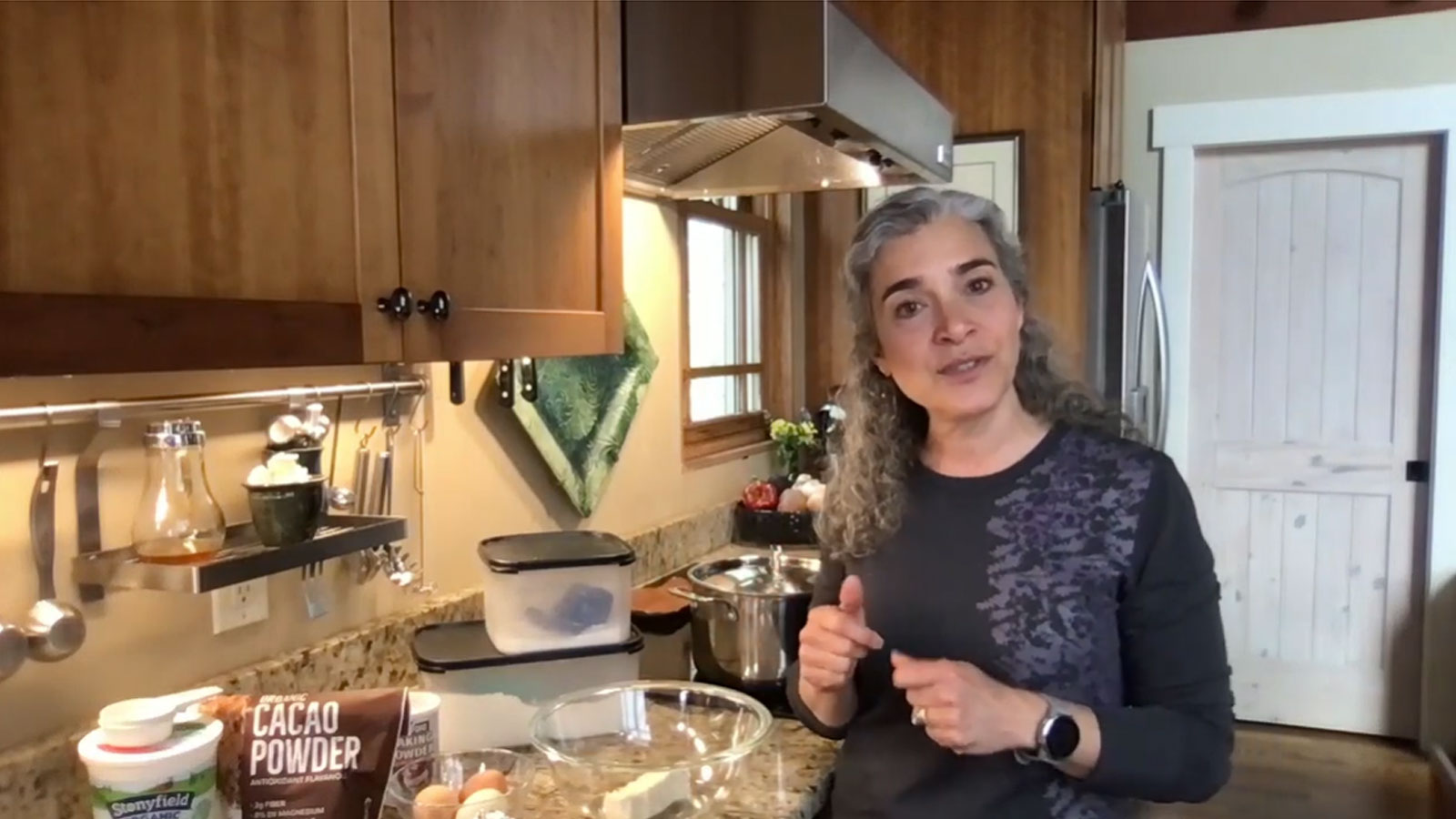Cooking may never be the same.
That, at least, is the hope of food physicist and educator Carla Ramsdell of the Department of Physics and Astronomy in Appalachian State University’s College of Arts and Sciences.
For that matter, one’s stereotypical image of a high school of college physics teacher may also never be the same. In a seven-part “Sustainable Food Cooking Challenge” honoring this 22nd Earth Day, the charismatic and ebullient Ramsdell describes herself as “super jazzed” and “so psyched” about her “food/energy/water/climate change/equity nexus.” She says she hopes her efforts can “help people connect their food system with climate disruption.”
“Ten calories of fossil fuel energy goes into each calorie of food we consume,” she says in the opening introductory component of her show-and-tell series of seven YouTube videos. “About one-third of our human-induced greenhouse gases somehow come from the agri-food sector,” she says.
Pointing to a “bilateral relationship” between the food production system and the climate, she says disruption of the climate “is threatening our ability to grow the food we need.”
With easily understood “digestible physics” requiring no specialized knowledge, Ramsdell walks viewers through the process of assembling, preparing, and eating “simple, delicious, inexpensive meals,” providing those cooking a “delicious citizen-science opportunity.” She promises they can do so at “a fraction of the cost” of conventional meals while helping combat what she calls “food insecurity” challenges.
Her individual videos cover a range of selections such as lentil-based tacos, “low-energy & decadent” chocolate cake requiring no oven time, and pesto pasta with peppers.
A self-described “environmentalist, food physicist, and cooking enthusiast,” Ramsdell, trained in physics and in mechanical engineering, says “some basic physics education hopefully can be used to better understand the Earth’s energy balance or imbalance, as is the case currently.”
“The kitchen can be the perfect entry point for climate engagement and activism,” Ramsdell wrote in an email. “Once people become engaged here, this education will infiltrate their transportation, energy, built environment, and voting decisions.” She says she chose the recipes highlighted in her YouTube video series “to be very easy and inexpensive, so that students and adults can feel comfortable to give them a try.” In the videos, she encourages people to “cook with me” while watching, and then to enjoy in their own kitchens the aromas and tastes of their work. The individual videos range in length from about six to 18 minutes.
Source link


